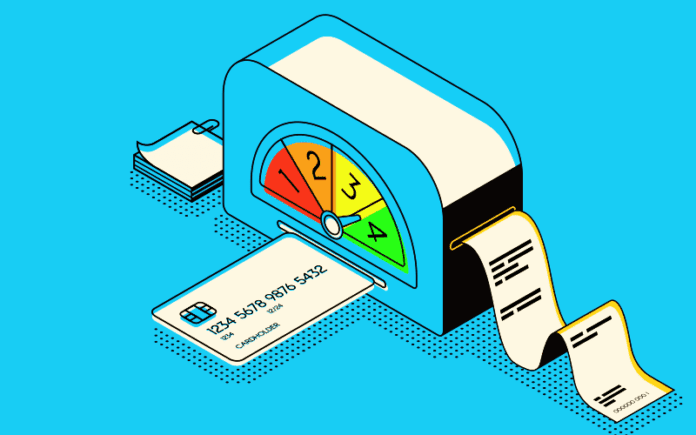In the intricate landscape of credit management, tradelines play a pivotal role in shaping an individual’s credit score. A tradeline refers to any account listed on a credit report, including credit cards, mortgages, and installment loans. With the increasing popularity of credit-building strategies, many consumers are curious about the potential impact of tradelines on their credit scores.
The allure of enhancing one’s creditworthiness through the addition of established tradelines has led to a surge in interest, especially among those seeking to secure loans, mortgages, or favorable interest rates. However, while the concept of purchasing or adding authorized user tradelines promises quick fixes for credit improvement, it’s essential to understand the nuances involved.
Factors such as payment history, credit utilization, and the length of credit history contribute significantly to overall credit scores. This article aims to demystify the relationship between tradelines and credit scores, offering insights on how they function, their potential benefits, and the risks involved. For consumers looking to navigate the complexities of credit enhancement, does tradeline increase credit score understanding tradelines is crucial to making informed financial decisions. Join us as we explore the critical elements that can influence your credit profile and the implications of leveraging tradelines effectively.
– Understanding Tradelines and Credit Scores
Tradelines are essentially records of credit accounts that appear on an individual’s credit report. Each account, whether it be a credit card, mortgage, or installment loan, is considered a tradeline and reflects key information such as the date the account was opened, the credit limit, the payment history, and the current balance. These details play a significant role in determining a credit score, which is a numerical representation of an individual’s creditworthiness. A healthy mix of tradelines, along with timely payments and low credit utilization, can positively influence the overall credit score.
When evaluating the question of whether a tradeline increases credit score, it is essential to consider how tradelines contribute to the broader credit profile. A well-managed tradeline can enhance credit scores by demonstrating responsible credit usage and timely repayments. Conversely, negative marks associated with a tradeline, such as missed payments or high balances, can have detrimental effects. Therefore, understanding the implications of tradelines is crucial for anyone looking to improve their credit score, as they are pivotal in shaping the overall credit landscape.
– Impact of Tradelines on Creditworthiness
The influence of tradelines on creditworthiness is profound, as they serve as a critical component of an individual’s overall credit history. Each tradeline encapsulates essential information that lenders use to assess the risk of extending credit. A robust credit profile characterized by multiple positive tradelines can significantly enhance one’s perceived creditworthiness, thereby increasing the likelihood of loan approvals and favorable interest rates. This is particularly relevant for individuals looking to build or improve their credit profiles, as adding a well-established tradeline can provide a boost to their credit scores, thus affirming their ability to manage debt responsibly.
Moreover, the quality and management of tradelines are equally important. A single negative tradeline can overshadow numerous positive accounts, leading to a decrease in creditworthiness. Additionally, the age of tradelines plays a pivotal role; older accounts with a history of on-time payments can positively influence a credit score. Therefore, understanding how tradelines function and actively managing them is crucial for anyone seeking to improve their credit score and overall financial health.
– Evaluating Tradeline Benefits and Risks
When considering the implications of tradelines, it is crucial to evaluate both their benefits and risks. On one hand, the potential for a tradeline to improve an individual’s credit score can be enticing, particularly for those with limited credit history or lower scores. A well-managed tradeline can contribute positively by enhancing the average account age and demonstrating responsible credit use. However, the decision to add a tradeline should not be taken lightly, as the consequences of mismanagement can be significant. A purchased or added tradeline that later reveals issues, such as late payments or high credit utilization, could negate any initial benefits and lead to further credit score depreciation.
Additionally, the practice of utilizing tradelines can carry reputational risks and ethical considerations. Some lenders and credit bureaus may view the strategic addition of tradelines skeptically, potentially leading to negative implications for the individual’s credit profile. It is essential to weigh the immediate benefits of a potential score increase against the long-term ramifications, including the possibility of being flagged for credit manipulation. Therefore, thorough research and careful consideration are vital steps in ensuring that the decision to incorporate a tradeline aligns with broader financial goals and responsibilities.
In conclusion, understanding whether a tradeline increases your credit score requires careful consideration of various factors. While adding a tradeline can potentially enhance your credit profile by improving your credit utilization ratio or lengthening your credit history, it is essential to approach this strategy with caution. Not all tradelines are created equal, and the impact on your credit score can vary based on individual circumstances and credit behaviors.
As you navigate this complex landscape, remember that building a solid credit score is most effectively achieved through responsible financial practices, such as timely payments and maintaining low debt levels. Ultimately, a well-informed approach to tradelines can serve as a beneficial tool in your overall credit-building strategy, but it should be coupled with a commitment to sound financial habits.










